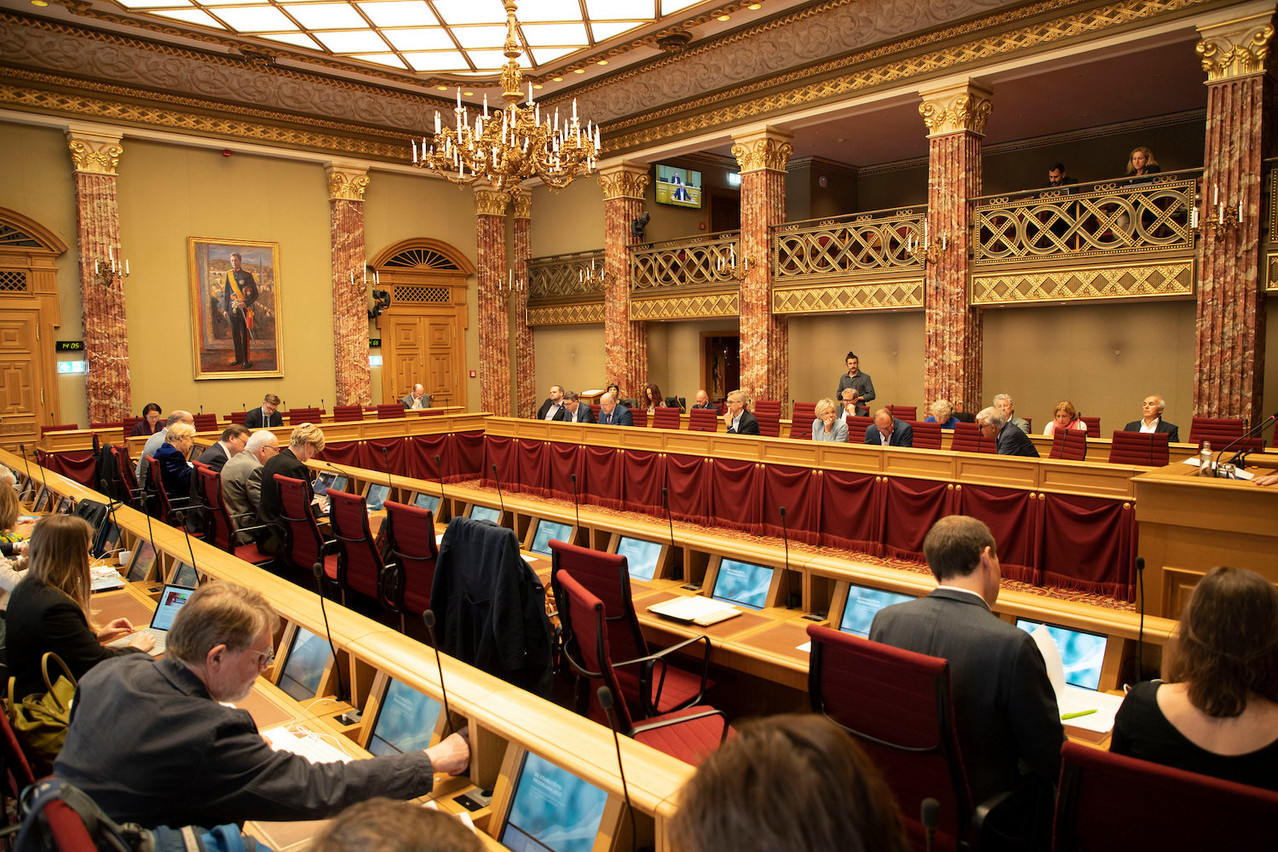The CSV Christian democrat opposition had submitted a motion to a vote that called for weapons deliveries to Ukraine, support for Ukraine to join the EU, for humanitarian corridors and investigations into war crimes but also an immediate energy embargo.
“We are confronted daily with a war that causes deaths, that makes people suffer, where rape happens, where people flee if they have the possibility, where everything is being taken from them,” said Claude Wiseler (CSV) presenting the document.
“We’re convinced that if Putin wins this war in Ukraine, he won’t stop,” he said, adding that Ukrainians are putting their lives on the line for the West. “They’re fighting the war for us.”
Members of the European Parliament at the start of April overwhelmingly voted in favour of an , after the EU had previously decided to stop coal imports. Luxembourg MEPs from all parties represented--the CSV, DP, déi Gréng and LSAP--supported the resolution.
But at home, the majority parties (DP, déi Gréng and LSAP) rejected the document over technicalities.
Agree to disagree
“We should all agree that the content of this motion is important,” said Yves Cruchten (LSAP). “We must isolate Russia political and economically,” he said, adding that “Ukraine and the Ukrainian people deserve all our support.”
However, he said that the motion would shackle Luxembourg’s ministers negotiating in Brussels to one firm position, unable to find compromise between member countries.
Cruchten echoed remarks made by prime minister Xavier Bettel (DP) who said that Luxembourg as an importer of energy from other EU countries would have to coordinate with its partners and that different options are on the table. Belgium, for example, has proposed a spending cap for Russian gas in a transition phase.
Supporting a full embargo without giving dependent countries the time and opportunity to look for alternatives could sow discord in the EU, he said.
Sven Clement of the Pirate Party, which supported the motion, said the document was not “an imperative mandate” but would allow Luxembourg to show up with a strong position in Brussels and support other member countries who are in favour of an embargo. Nothing in the document would prevent the government from reaching another compromise if this was the best way forward for the 27-country bloc, he said.
Energy imports
The EU imported energy worth around €100bn from Russia in 2021. Under the REPowerEU scheme, the bloc has committed to exiting Russian fossil fuels by 2030. The Baltic states in response to the war in Ukraine in April said they had stopped gas imports from Russia.
Supplier Gazprom this week meanwhile turned off the tap to Poland and Bulgaria for failing to pay in rubles. Following EU sanctions against Russia, the country demanded payment in its national currency even if this violates existing contracts. European Commission president Ursula von der Leyen called the move “unacceptable” but said that the EU would implement an “immediate, united and coordinated” response.
A debate on the motion’s wording on Thursday afternoon led nowhere as speakers turned in circles around whether or not the document would prevent Luxembourg from supporting EU compromise. Put up to a vote, it received the support from the CSV and Pirate Party but was rejected by all other groups in parliament.
Left-wing party déi Lénk said they could not support the delivery of weapons to Ukraine at the risk that this would further escalate and prolong the war. The right-wing ADR meanwhile warned of a recession in the wake of an energy embargo and also raised questions about Ukraine’s future in the EU.
“Russia isn’t a democracy,” said Fernand Kartheiser (ADR). “But Ukraine also isn’t a democracy,” he said. “They’re not necessarily fighting for our values.”
